Five humanitarians working for every child
On August 19 we celebrate World Humanitarian Day, and all the humanitarian workers who ensure children around the world are supported so that they can thrive.
From healthcare professionals working through the pandemic to drivers and delivery personnel reaching the remotest of places, to the teachers, nurses and aid workers working through chaos and conflict.
In this photo essay, we meet five humanitarians who go the extra mile – for every child.
Nigeria
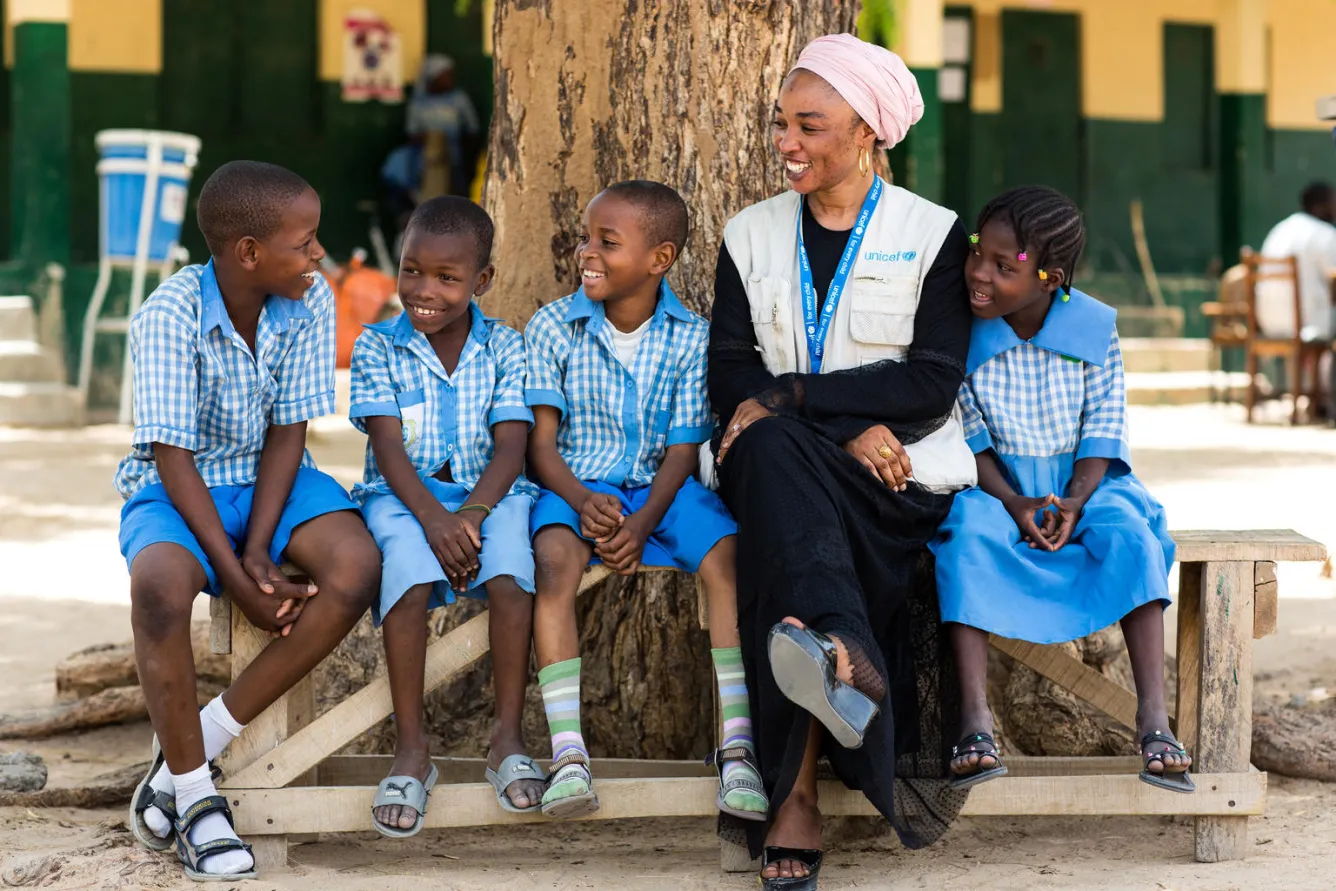
Rukaiya Abbas, a UNICEF Nigeria Education Officer, sits with students at Kulmsulum School in Maiduguri, the capital of Borno state in northeast Nigeria.
“I get motivated when I see children go to school,” says Rukaiya. “I come from Maiduguri and I’m convinced that with more children in school we can have a more stable and peaceful future”.
UNICEF works in northeast Nigeria to help conflict-affected children reintegrate into learning with the assistance and opportunities they need to realize their right to an education.
Romania
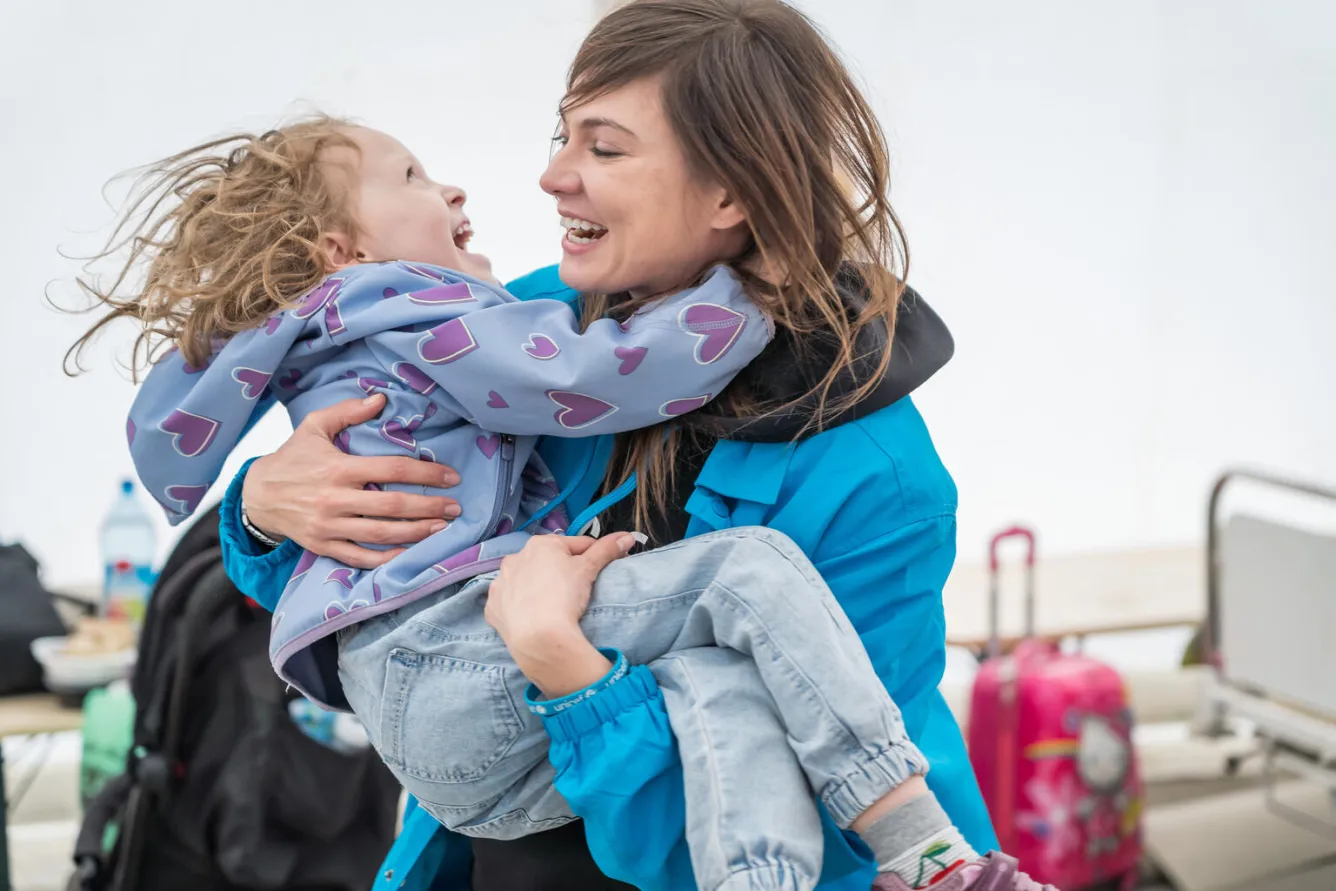
UNICEF staffer Yulia Yurova knew she couldn’t stay away after the war broke out in her home country of Ukraine. So, she asked to be deployed to the border from Switzerland where she was working.
Here, Yulia is seen at a Blue Dot hub at the Isaccea border crossing in Romania, where she plays with 5-year-old Emma. Emma, her mother Yulia, and her little brother arrived at the hub after traveling from Odessa, Ukraine.
UNICEF and its partners are setting up Blue Dot hubs across Romania and the region. These hubs are dedicated to support refugee children and family and their most immediate needs.
Syria
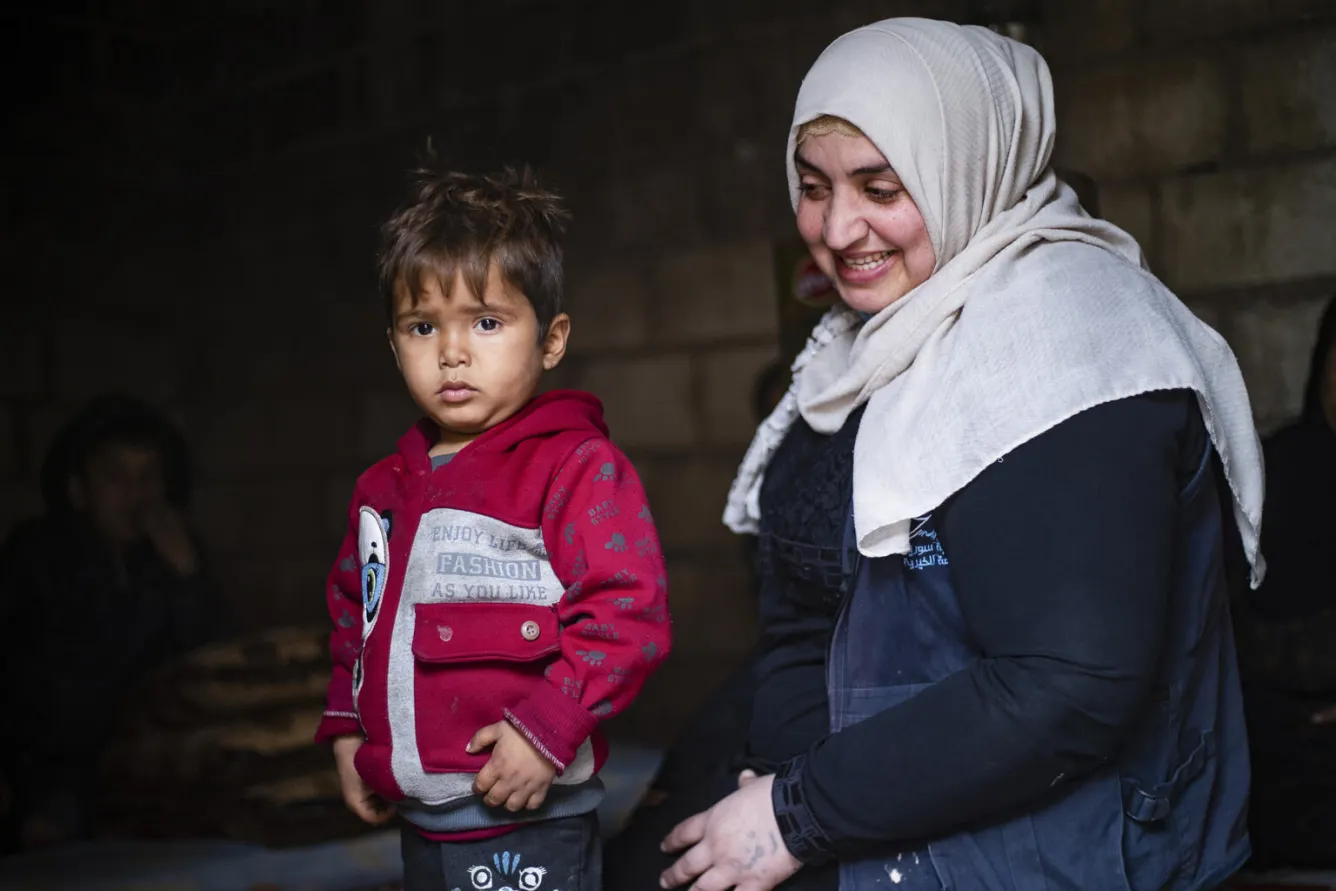
Ruqaya, watches over three-year-old Alaa, one of the children she helped to reunite with his family in Hasakeh, northeast Syria.
Children have the right to live in a safe environment, to grow up with their families and among their siblings,” says Ruqaya who supervises a team of 38 case managers. They work with a UNICEF-supported partner in Hasakeh to connect children with essential services and ultimately reunite them with their families and caregivers. She believes case management is life-changing support rather than merely a service provided.
Ruqaya and her colleagues have supported countless numbers of Syrian children who have lost track of their parents due to the conflict. They are the hidden everyday heroes.
In 2021, UNICEF reached over 450 protection workers and community volunteers in Hasakeh with training on various child protection subjects, including child protection foundations, case management, psychosocial support, explosive ordnance risk education, gender-based violence, and protection from sexual exploitation and abuse. UNICEF -trained case managers supported 5,000 children and adult survivors of gender-based violence and provided support through case management.
Côte d’Ivoire
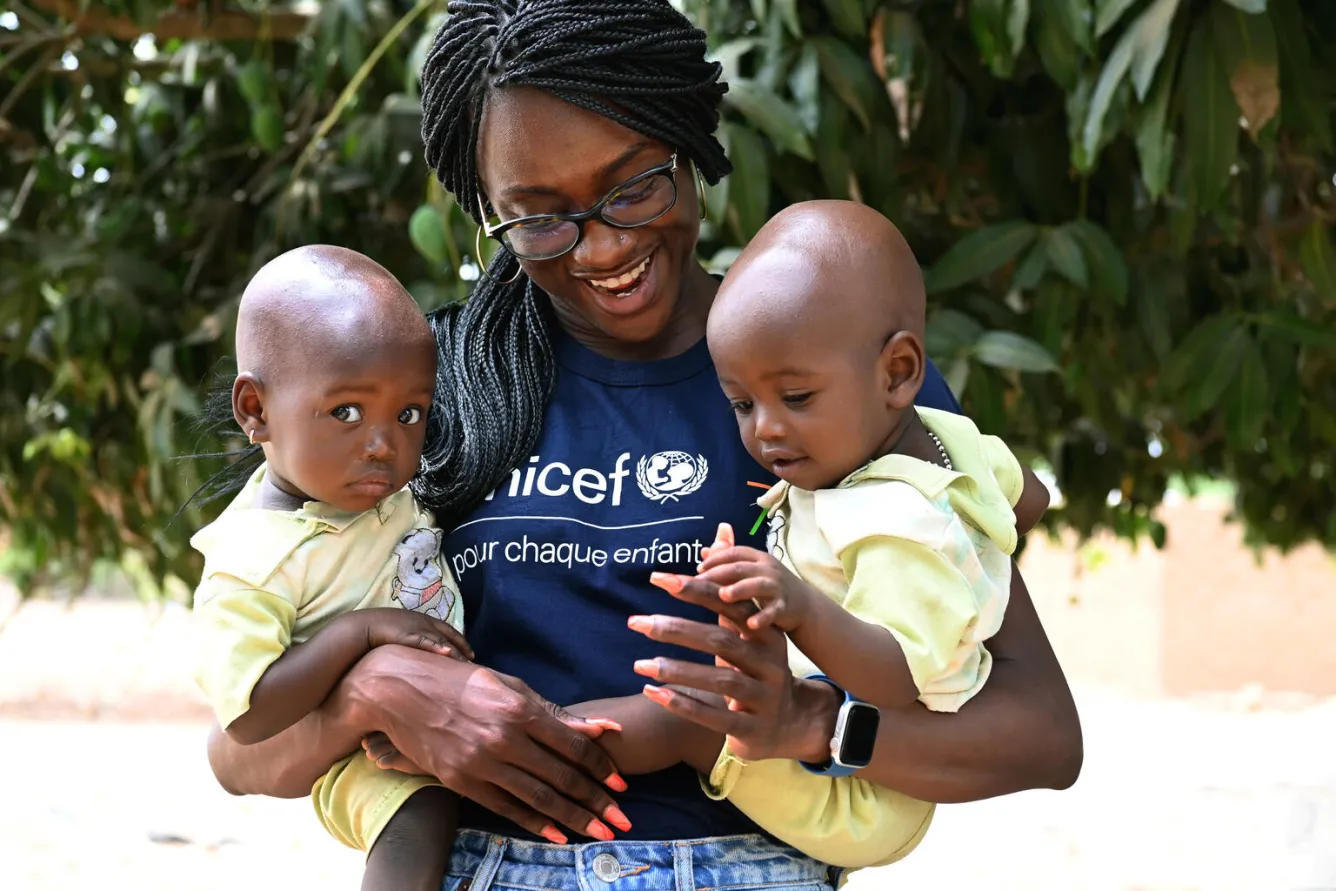
Fanta Kone, a UNICEF Staff member, shares a laugh with twins, refugees from Burkina Faso, in Tougbo, in the north of Côte d’Ivoire. The twins Adama and Awa, are 10 months old. The children had to flee with their mother from their home country, Burkina Faso.
The severe humanitarian crisis in Burkina Faso, which began in 2018 and continues unabated, has left 4.7 million people in need of humanitarian assistance, including 3.9 million people in the six most acutely affected regions. One out of two children is affected by violence in the six most affected regions. The crisis is significantly increasing the vulnerabilities of children and is also dramatically exacerbating social and community tensions. The resulting stigma and social discrimination undermine social cohesion and peaceful coexistence within society.
Meanwhile, the current situation in the north of Côte d’Ivoire - due to multiple factors such as underlying community tensions, a rise in attacks by non-state armed groups and the arrival of refugees from the central Sahel - raises fears that there may be a rapid deterioration in the living conditions of the population, particularly children and women.
As part of UNICEF’s resilience programming, UNICEF aims to strengthen social cohesion and improve the resilience of systems, communities and individuals in the face of shocks in the north of Côte d’Ivoire.
Afghanistan
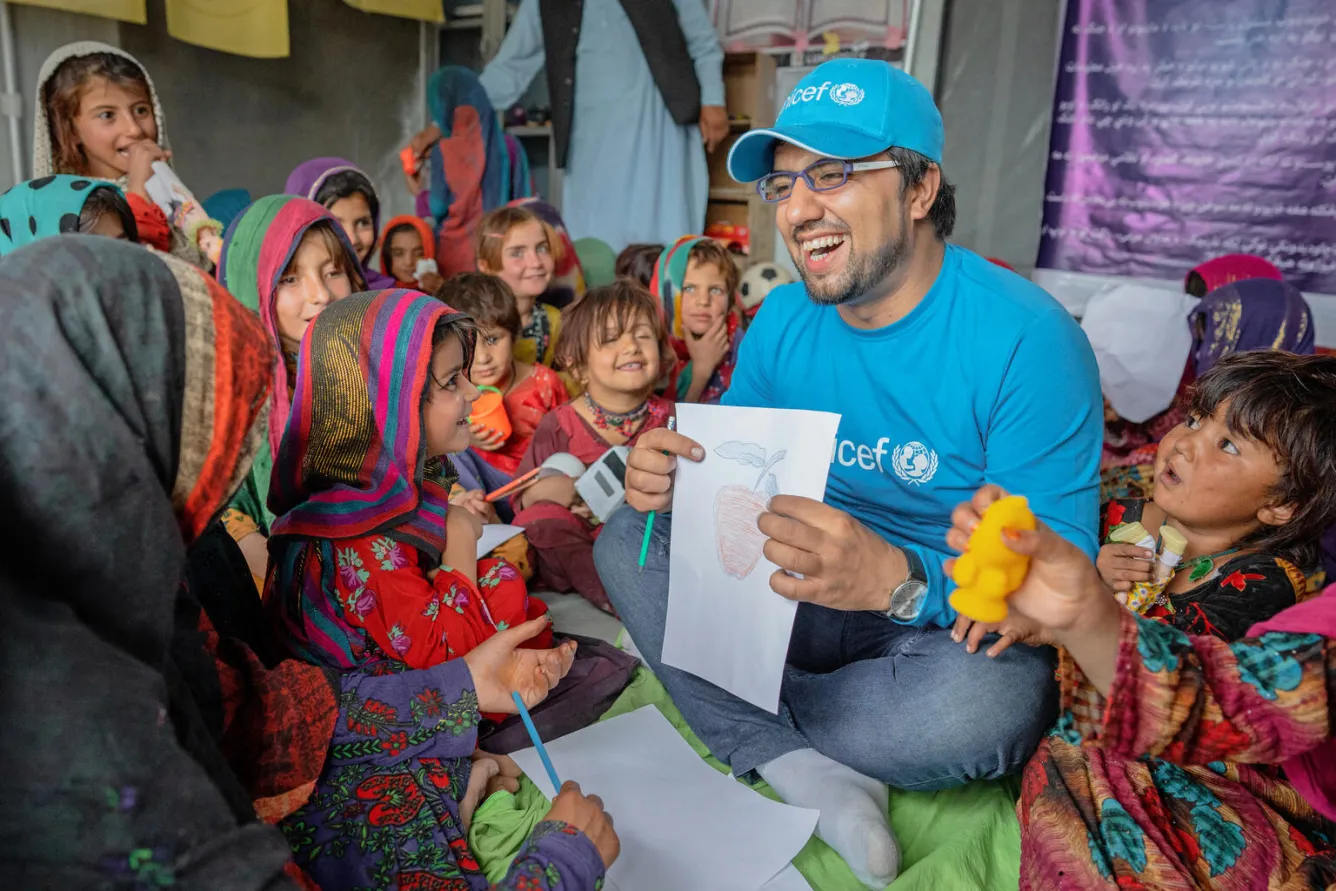
Bahir Wyaar, a UNICEF Education Specialist, plays with survivors of June’s devastating earthquake at a recently established UNICEF-supported Child Friendly Space in Gayan District, Paktika Province, Afghanistan.
UNICEF and partners have so far set up 12 Child-Friendly Spaces in the earthquake-affected area and have reached 1,284 children with psychosocial support as well as providing cognitive, recreational and sports activities. The 5.9 magnitude earthquake struck the Central Region of Afghanistan on the 22nd June 2022 and UNICEF continues to remain on the ground providing life-saving supplies and support to families and children.
According to Bahir, “The June earthquake was a disaster and children were disproportionately devastated. They’ve gone through a difficult time and when they go through trauma and such difficulties, it's important that we bring them back into their normal life. That's why we're providing them with the opportunity to access play, education and to feel like children and not just the victims of the earthquake.”
